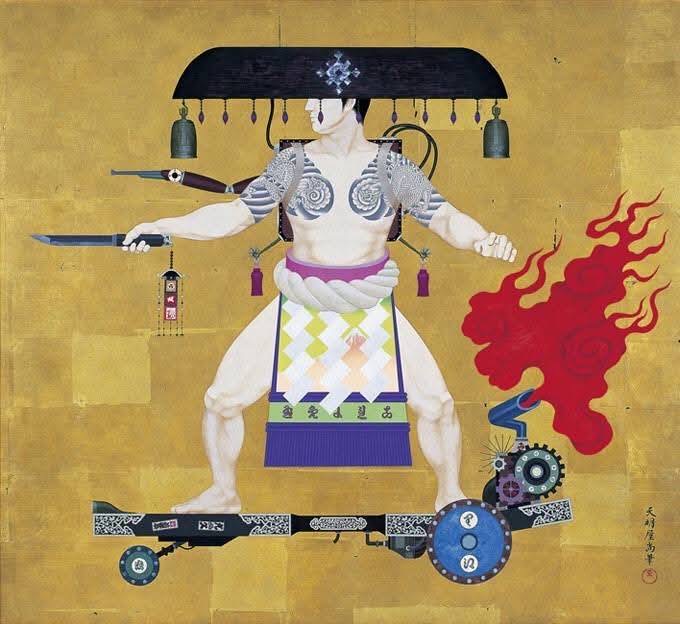ตัดโซ่หรือตายซาก ตอนที่ 5 – 6
นิทานเรื่องจริง เรื่อง ” ตัดโซ่ หรือ ตายซาก”
ตอน 5
ไม่รู้ยังจำกันได้ไหม หลังจากสหภาพโซเวียตถูกทุบจนแหลกละเอียด ตั้งแต่ปี ค.ศ.1991 อเมริกาและพวก ตีปีกกันใหญ่ ว่ากำจัดขู่แข่งตัวสำคัญไปเรี ยบร้อยแล้ว เวลาผ่านไปเพียง 15 ปี ส่วนหัวและหัวใจ ของสหภาพโซเวียตคือ รัสเซีย ดันไม่ตายตามต้องการ แถมฟื้นขึ้นมาแบบมาดใหม่ ด้วยการสู้ด้วยท่อส่งแก๊ส ที่รัสเซียวางไปตามจุดยุทธศาสตร์สำคัญ เป็นเรื่องที่อเมริกาและพวก คิดไม่ถึง ยิ่งท่อส่งแก๊สของรัสเซียวิ่งตรงมายุโรป และยุโรปกลายเป็นฝ่ายพึ่งแก๊สของรัสเซียถึง 60% อเมริกายิ่งหายใจแรง ด้วยความขัดใจ กระบวนการขัดขารัสเซีย ไปจนถึงแซงช้่นจึงค่อยๆทยอยปล่อยออกมาใส่รัสเซีย
เดือนธันวาคม ค.ศ.2014 รัสเซีย ประกาศยกเลิกเส้นทางท่อส่งแก๊ส South Sream ของ Gazprom บริษัทผลิตและส่งแก๊สของรัฐบาลรัสเซีย เพราะถูกอียูกั้ก ตามคำสั่งของอเมริกา รัสเซียหวังจะส่งแก๊สให้ชาวยุโรปด้วยเส้นทางใหม่ ที่ไม่ต้องผ่านยูเครน ที่กำลังมีปัญหากันอยู่ แต่ให้ไปโผล่ที่บุลกาเรีย เพิ่มอีกจุด เป็นผลประโยชน์ร่วมกันระหว่างยุโรป และรัสเซีย แต่อเมริกา บีบให้อียูบอกว่า แบบนี้เป็นการรังแกยูเครน แล้วอียู ก็ไปบีบบุลกาเรียอีกต่อ ไม่ให้ตกลงกับรัสเซีย แล้วอียู รัสเซีย ก็เดือดร้อน แต่อเมริกาสบาย ฉลาดฉิบหายเลย
คุณพี่ปูตินบอก ตามใจ ถ้าคนยุโรปไม่ต้องการ เราก็ช่วยอะไรไม่ได้ งั้นรัสเซียส่งมาทางตุรกีแทนก็ได้ แทบไม่มีใครเชื่อ เพราะคิดว่าตุรกีไม่กล้าแหกคอกจากอเมริกา มาต่อท่อกับรัสเซีย ก็อเมริกาเพิ่งสั่งให้ลูกกระเป๋งแซงชั่นรัสเซียอยู่หยกๆ เวลาผ่านไปไม่ถึง 6 เดือน เมื่อต้นเดือนพฤษภาคม ค.ศ.2015 นี้เอง ตุรกีกับ Gasprom ก็ยืนประกาศคู่กัน ว่า เส้นท่อส่งแก๊ส Turkish Stream เดินหน้าไปอย่างดียิ่ง และพร้อมจะส่งแก๊สจากรัสเซีย เข้ามาที่สถานีในตุรกีและไปโผล่ตรงเขตแดนตุรกี ที่ติดกับ”กรีซ “ได้ ในเดือนธันวาคม ค.ศ.2016 เพื่อส่งต่อให้กับลูกค้าในยุโรป….. มาแล้ว ฝีมือเดินหมากรุกระดับแชมป์
ในวันที่รัสเซียตัดสินใจ ไม่เดินหน้าไปทางบุลกาเรีย แต่เปลี่ยนมาเป็นตุรกีนั้น ทันทีที่ตกลงกับตุรกีได้ในต้นเดือนเมษายน ค.ศ.2015 คุณพี่ปูตินยกโทรศัพท์คุยกับคุณน้องอเล็กซิสด้วยตัวเอง หลังจากนั้น สำนักงานท่านประธานาธิบดีของรัสเซียก็ออกข่าวเงียบๆ ว่า รัสเซียพร้อมให้เงินกู้กับกรีซ เพื่อเป็นการตอบแทนที่กรีซเข้าร่วมโครงการ Turkish Stream เข้าไปในอียู …
แต่เมื่อสื่อเยอรมัน Der Spiegel รายงานข่าวว่า มอสโคว์พร้อมให้เงินกู้กับรัฐบาลกรีซทันที จำนวน 5 พันล้านยูโร ที่ประมาณว่า จะเท่ากับส่วนแบ่งกำไร ที่จะได้จากเชื่อมท่อส่งแก๊ส Turkish Stream แต่เครมลินออกมาปฏิเสธข่าวนี้ ….มันก็ควรปฏิเสธ เรื่องแบบนี้มันต้อง เปิดๆ ปิดๆ ถึงจะน่าตื่นเต้น
ในขณะที่กรีซและเจ้าหนี้ กำลังเจรจาเครียด เมื่อต้นเดือนมิถุนายนนี้เอง ถึงเรื่องหนี้ ที่ต้องจ่ายให้แก่ IMF จำนวน 1.6 พันล้านยูโรในวันสิ้นเดือนมิถุนายน นายกรัฐมนตรี อเล็กซิส ยังไม่มีคำตอบให้กับเจ้าหนี้ ว่าเขาจะเอาเงินมาจากไหนมาใช้หนี้ แต่วันรุ่งขึ้น เขาบินไปร่วมงาน St. Petersburg Economic Forum ที่รัสเซีย อย่างไม่มีอาการเครียด…
ตลอดเวลาที่ผ่านมา รัสเซียพยายามไม่ยุ่งกับเรื่องวิกฤติทางการเงินของยุโรป แต่ปัญหาของกรีซ มันอาจจะทำให้รัสเซียเห็นทาง… ที่อาจจะคุ้ม กับค่ายุ่งก็เป็นได้
และถ้ารัสเซียเห็นว่าคุ้ม แล้วโดดมาเล่นด้วย หนี้กรีซคงไม่ได้เป็นเรื่องวิกฤติทางการเงินเรื้อรัง แต่เปลี่ยนเป็นวิกฤติ ทางด้านภูมิศาสตร์การเมืองทันที นี่อาจจะเป็น ซึนามิ ที่จะมาหลังแผ่นดินไหวระดับ 8 ริกเตอร์
CFR (Council on Foreign Relations ) หน่วยงานที่เป็นผู้กำกับบทบาทของ รัฐบาลอเมริกัน เริ่มใช้ไมค์ตัวเล็ก นาย Sebastian Mallaby นักเศรษฐศาสตร์อาวุโส นำร่อง ออกมาให้ความเห็นว่า คุณคงไม่อยากเห็นยุโรปต้องเจรจากับกรีซ ซึ่งเป็นสมาชิกของนาโต้ แต่ปุบปับก็ดันจะไปซบกับรัสเซีย ” You don’t want Europe to have to deal with Greece, who is a member of NATO, all of a sudden cozying up to Russia”
แม้เป็นแค่ไมค์ตัวเล็ก แต่ป้าเข็มขัดเหล็ก ได้ยินเสียงแบบนี้ ก็ลนลานแล้ว เดิมรัฐบาลเยอรมัน คนเยอรมัน แบงค์เยอรมัน เห็นพ้องกันว่า เยอรมันจะยุติการให้เงินกู้กับกรีซเพิ่มเติม ถ้ากรีซ ยังเป็นลูกหนี้ที่ไม่มีวินัย มันต้องให้ใส่ทั้งโซ่เหล็ก และเข้มขัดเหล็ก เข้าใจไหม
เหมือนจะรู้ว่า ป้าเข็มขัดเหล็กกำลังคิดอะไร ไมค์ตัวเล็กจาก CFR เลยแถมท้าย…ป้าก็คงไม่ชอบใช่มั้ย ที่จะให้ปูติน ให้ของขวัญกับกรีซ ถ้ากรีซจะแหกคอก ออกไปจากพวกตะวันตกน่ะ …
แล้วก็เหมือนกลัว ป้าจะตัดสินใจยาก นายอเล็กซิส ก็เขียนตอบโต้ คำกล่าวของคนเยอรมันที่บอกว่า คนเยอรมันต้องทำงานหนัก เพื่อเอาเงินไปเลี้ยงคนกรีซที่เลิกทำงาน อเล็กซิส เขียนส่งไปลงในหนังสือพิมพ์เยอรมันว่า… ใครที่อ้างว่า คนเยอรมันต้องเสียภาษีเพื่อเอาจ่ายเป็นค่าจ้าง และเงินบำนาญ เป็นคนโกหก…อันนี้ ฮอร์โมนคนหนุ่มพุ่งแรงจริงๆ
กรีซและเจ้าหนี้ กำลังขยับการเผชิญหน้าใกล้เข้ามา จนแทบจะหายใจใส่หน้ากันอยู่แล้ว แต่ป้าเข็มขัดเหล็ก ทำปากแข็งบอก ฉันยังไม่ได้ตัดสินใจ ฉันยังรอรับฟังข้อเสนอของกรีซอยู่ ว่าแล้วก็หัวร่อร่ากับหนุ่มกรีก ทำเหมือนไม่มีรอยร้าวระหว่างป้า กับหลาน CFR คงไม่แน่ใจว่า ป้าหัวร่อกับหนุ่มกรีก เพราะเครียด หรือ ขากรรไกรค้าง รีบสำทับ อียูต้องจัดการให้ดีนะ ไม่งั้นเรื่องนี้คงจบยาก หรือจบไม่สวย และจะเป็นตัวอย่างที่ไม่ดี ให้สเปนและปอร์ตุเกส เอาอย่าง
ไมค์ตัวเล็ก ยี่ห้อ CFR สำทับแบบนี้ อียูคงต้องคิดหนัก
###############
“ตัดโซ่ หรือ ตายซาก”
ตอน 6 (จบ)
ดูเหมือนกรีซจะมีทางเลือก ขึ้นอยู่กับว่า กรีซคิดอะไร
ทางเลือกที่หนึ่ง : ถ้าเจ้าหนี้ยินยอมปรับปรุงโครง สร้างหนี้ ในเงื่อนไขตามที่ทั้ง 2 ฝ่ายรับได้ และกรีซ ไม่คิดออกจากอียู เรื่องก็คงจบด้วยดี จบแบบ ยังพอรักษาหน้า รักษาไมตรี ต่อกัน
กรีซก็ได้อย่างที่ต้องการ ได้เอาโซ่ออกจากคอ ส่วนเจ้าหนี้ก็คงขาดโอกาส ที่จะใช้โซ่รัดคอกรีซต่อไป แต่ไม่เป็นไร เชื่อสายอัศวินนักล่าใบตองแห้ง ปลิ้นปล้อนต่อไปได้ว่า เห็นแก่มนุษยธรรม พูดเอาบุญเอาคุณไปได้อีกนาน คนที่จะช้ำหน่อย น่าจะเป็นป้าเข็มขัดเหล็ก เพราะลั่นปากออกสื่อไปแล้ว ว่าจะไม่ให้กู้เพิ่มแล้วถ้าไม่รัดโซ่ให้แน่นกว่านี้ นี่โซ่ก็ถูกตัดแต่ยังต้องอุ้มเขาต่อ ป้าก็คงต้องหุบปากบ้าง ไม่งั้นเรื่องเงินกู้กรีซ รอบแรก ที่แบงค์เยอรมันได้ไปก่อน คราวนี้ รับรองมีคนเอามาแฉใหม่แน่
แต่มันแสนจะคุ้ม ที่สะกัดทางคุณพี่ปูติน ที่คิดจะเข้าอียูผ่านกรีก
แล้วคุณพี่ปูติน ที่คิดจะเข้ามาเดินเล่นแถวกรีซล่ะ คุณพี่เขาก็เปลี่ยนวิธีเดินหมากได้ไหม่แน่นอน แชมป์หมากรุก ยอมมองทางออกทั้งกระดาน จะเดินตาไหนต่อ ก็คอยดูกันไป แต่คิดให้ดี ถ้าไม่มีข่าวคุณพี่ปูตินโทรหาคุณน้องอเล็กซิส รับรอง ทางเลือกที่หนึ่งนี่ ไม่มีทางเกิดขึ้น
ทางเลือกที่สอง : กรีซเหม็นเบื่ออียูเต็มที ถึงเจ้าหนี้จะตกลง ปรับปรุงโครงสร้างหนี้ แต่กรีซบอกไม่เอาแล้ว เดี๋ยวให้ เดี๋ยวไม่ให้ เราจบกันแค่นี้ดีกว่า เอะ แล้วกรีซจะเอาเงินที่ไหนมาใช้ IMF สิ้นเดือนนี้ 1.6 พันล้าน ยูโร อย่านึกว่าคุณพี่ปูตินจะตกลงด้วยง่ายๆ นะครับ ให้ยืมน่ะเรื่องนึง ถ้าคุณพี่ตกปาก แล้วคงไม่เบี้ยว แต่ยืมเอาไปใช้หนี้เต็มราคา ไม่มีลดค่าหน้าตั๋ว ไม่มี ตัดผม haircut ผมเป็นคุณพี่ปูติน ผมไม่ให้ยืมหรอก เห็นกันอยู่ชัดๆ ว่าลูกหนี้ล้มละลาย ก็พวกไอ้หมาไนของมันบอกเอง เจ้าหนี้หวังให้ใช้หนี้เต็มร้อย ก็ฝันไปหน่อย
ตอน ปี ค.ศ.2012 เมื่อเห็นกันชัดๆ เต็มลูกตา ว่าวิธีเอาเงินกู้มาจ่ายเจ้าหนี้ทั้งก้อน วนไปวนมา หนี้กรีซก็ไม่มีวันลด คุณป้าเข็มขัดเหล็ก เลยเสียงเขียวให้เจ้าหนี้เอกชน ลดหนี้ ตัดผม haircut กันบ้าง มีต้ังแต่ ลด 50% ไปถึงลด 80 % เหลือ 20 ยังดีกว่าไม่ได้อะไรเลย แล้วก็ให้ไปแลกกับตั๋วใหม่ เขาว่า มีกองทุนแร้งลง ซื้อตั๋วใหม่พวกนี้อีกต่อ ราคาถูกลงไปอีก ไปเก็งกำไรอีกต่อ แล้วคิดว่าแบบนี้คุณพี่ปูติน จะจ่ายให้ IMF เต็มร้อยไหม เผลอๆ เรื่อง รัสเซีย จะให้เงินกู้กรีซ เป็นเรื่องสมต้มกัน
ตกลงวิธีนี้จะไปได้ ก็ต่อเมื่อ IMF ลดหนี้ให้ แล้วถ้า IMF ก็เดาอยู่แล้ว ว่าเงินอาจจะมาจากไหน คิดว่า IMF จะลดหนี้ให้ไหม คุณนายหน้าเค็มไม่ยอมหน้าจืดหรอกครับ ลืมไปได้เลย
ทางเลือกที่สาม : เหมือนทางเลือกที่สอง แต่ยังไม่ใช้หนี้ IMF เรียกว่า ตัดโซ่คล้องคอของเจ้าหนี้ ตัดเชือกผูกกับ อียู ยอมให้เขาว่าเป็นประเทศล้มละลาย ต้ังหน้าต้ังตา สร้างบ้านเมืองใหม่ แบบนี้ อาจจะมีเจ้าหนี้จูงกันมาให้กู้แบบดอกต่ำ เงื่อนไขไม่โหด แต่กรีซใจถึงไหม ที่จะเล่นบทนี้ บทนี้มันต้องใจถึงกันทั้งประเทศ
ทางเลือกของกรีซ ก็คงมีเท่านี้
ส่วนทางเลือกของเจ้าหนี้ มีแค่ 2 ทาง
ทางเลือกที่หนึ่ง : ก็เหมือนทางเลือกที่หนึ่งของกรีซนั่นแหละ แค่เสียหน้า แต่ระบบแบงค์ยังปลอดภัย ที่สำคัญ ทางภูมิศาสตร์การเมือง ปิดทางเข้าอียูของรัสเซียผ่านกรีซ คุ้มยิ่งกว่าคุ้ม แผ่นดินไหวไม่มี ซึนามิการเมืองไม่เกิดขึ้น แต่รายการนี้ ไม่ได้ขึ้นอยู่กับเจ้าหนี้ข้างเดียว ต้องถามใจกรีซด้วย
ทางเลือกที่สอง : เจ้าหนี้ไม่ขยับ ไม่ปล่อยเงินกู้ก้อนใหม่ให้ ไม่ผ่อนเวลาให้ ยึดแน่นกับเงื่อนไขโหด แถมจะเพิ่ม ให้โซ่คล้องคอกรีซรัดแน่นกว่าเดิม ทำไมหรือ ก็ยังกินไม่อิ่ม ไม่มีอะไรมาก ยิ่งท่อแก๊สรัสเซียจะมา ยิ่งอร่อย ยึดมาใช้หนี้เสียเลยดีไหม และเชื่อว่ารัสเซียไม่มีปัญญา ที่จะเข้ามาชำระหนี้ก้อนใหญ่ให้กรีซ
ถ้าเจ้าหนี้เลือกทางนี้ ไม่ต้องวิเคราะห์มากครับ รับรอง มีทั้งแผ่นดินไหว อาฟเตอร์ช็อก ซึนามิทางการเงิน เศรษฐกิจ และการเมืองครบถ้วน อาจจะเลยเป็นชนวนสงครามโลกแทนยูเครน ที่นางเหยี่ยวรับหน้าที่มาจุดให้ไอ้นักล่าใบตองแห้งด้วยก็ได้
ใครมันจะยอมให้หยามหน้า รังแกกันมากขนาดนั้น แล้วกลับบ้านนอนสบาย
สวัสดีครับ
คนเล่านิทาน
28 มิ.ย. 2558
หมายเหตุ: เขียนนิทานจบไปแล้ว ต้ังเวลาโพสต์ล่วงหน้า เตรียมเข้านอน เช็คข่าวล่าสุด ทำเอานอนไม่ได้ ต้องกลับมานั่งเขียนต่อ
ล่าสุด วันที่ 27 มิถุนายน มีข่าวออกมาตอนค่ำบ้านเรา บอกว่า นายกรัฐมนตรีกรีซ พูดว่า เราคงเดินหน้าโดยมีโซ่คล้องคอแบบนี้ไม่ไหว เขาจึงออกทีวี ประกาศว่า เขาจะจัดให้มีการทำประชามติ ในวันที่ 5 กรกฏาคม นี้ ว่า ประะชาชนจะเอายังไง yes หรือ no กับ การกู้เงินต่อไป คำพูดของนายกรัฐมนตรีกรีซ อาจเป็นประโยคประวัติศาสตร์ ที่ต้องจดจำ หรือมีการอ้างถึงต่อไป
” กระผมขอให้ท่านตัดสินใจ ด้วยสำนึกในประวัติศาสตร์ แห่งความเป็นประเทศเอกราชและมีศักดิ์ศรีของกรีซ ว่าเราจำเป็นหรือไม่ ที่ต้องรับการยื่นคำขาด ที่เสมือนเป็นการเหยียดหยามเรา ที่บีบคั้นเราอย่างรุนแรงและไม่มีที่สิ้นสุด และไม่มีแนวทางให้เราเห็นแม้แต่น้อย ว่าเรา จะมีโอกาสยืนด้วยสองเท้าของเราเองได้อีกหรือไม่ ทั้งในด้านสังคมและทางด้านการเงิน
ประชาชนจะต้องตัดสินใจ โดยปราศจากความกดดัน จากการยื่นคำขาดดังกล่าว”
“I call uopn you to decide – with sovereignty and dignity as Greek history demands-
whether we should accept the extortionate ultimatum that calls for strict and humiliating austerity without end, and without the prospect of ever standing on our own two feet, socially and financially.
The people must decide free of any blackmail..”
เป็นคำประกาศของคนหนุ่ม ที่ “แรง” เกือบจะเป็นการประกาศสงครามเชียวนะ
ขณะเดียวกัน ฝ่ายเจ้าหนี้ โดยนายเจริญ Jeroen Dijsselbloem รัฐมนตรีคลังของดัชท์ ที่เป็นประธานที่ประชุมเจ้าหนี้ เมื่อได้รับถุงมือขาวของหนุ่มกรีก ก็รีบออกข่าวว่า เมื่อนายกรัฐมนตรีกรีซประกาศเช่นนี้ ก็ น่าจะแปลว่ากรีซ ไม่รับข้อเสนอของฝ่ายเจ้าหนี้ และการเจรจาก็น่าจะสดุดหยุดลง เมื่อไม่มีข้อตกลง กรีก ก็ต้องหาเงินมาชำระหนี้ จำนวน 1.6 พันล้านยูโร ให้กับ IMF ทีจะถึงชำระในวันที่ 30 มิถุนายนนี้
ก่อนหน้านั้น เล็กน้อย คุณน้องยานิสของผม ก็แจ้งในที่ประชุมรัฐมนตรีคลังของอียู ว่า กรีซ ขอ เลื่อนกำหนด วันตัดสินประหารขีวิตออกไปสัก 2 สัปดาห์ได้ไหม เพราะ เขาจะทำประชามติ กัน มันเป็นเรื่องเกี่ยวพันกับชีวิตพวกเขา ให้พวกเขามีสิทธิมีเสียงตามประชาธิปไตยบ้าง ที่ประชุมอียู ตอบสั้นๆ ว่าไม่ได้ คุณน้องยานิส ก็เก็บของ เดินออกจากห้องประชุม
ฝ่ายเจ้าหนี้ โดยรัฐมนตรีคลังของฟินแลนด์ ออกมาบอกว่า ตอนนี้ แปลว่า ต้องเปลี่ยนเอา แผนสำรอง มาเป็นแผนจริงแล้ว
แปลว่าอะไรครับ ช่วยกลับไปอ่านนิทานข้างต้นอีกที แปลว่า แผ่นดินเริ่มไหว จะขนาดไหน วันจันทร์ก็คงรู้ ที่กุมๆกันไว้ในกระเป๋า ก็คงเริ่มทยอยเอาออกมาใช้กัน แต่เกมนี้ยังไม่จบง่ายๆ ดูกันต่อครับ จะกินบ้าน กู้เมืองกัน มันไม่ใช่เล่นเกมกด เกมชิงเมืองนี้ อาจลามไปไกล…จะกลายเป็นเกทับบลั้ฟแหลกกันขนาดไหน หรือ ของจริงแอบแจม ได้ทั้งสิ้น
แต่อย่างน้อย วันนี้ ผมขอคารวะหนุ่มกรีก สำหรับประโยคเดินนำออกจากคอก ที่ คนรักบ้านรักเมือง รักศักดิ์ศรี ไม่ว่าจะเป็นคนชาติไหน ก็ต้องซึ้งใจ
สวัสดีครับ
คนเล่านิทาน
28 มิ.ย 58
นิทานเรื่องจริง เรื่อง ” ตัดโซ่ หรือ ตายซาก”
ตอน 5
ไม่รู้ยังจำกันได้ไหม หลังจากสหภาพโซเวียตถูกทุบจนแหลกละเอียด ตั้งแต่ปี ค.ศ.1991 อเมริกาและพวก ตีปีกกันใหญ่ ว่ากำจัดขู่แข่งตัวสำคัญไปเรี ยบร้อยแล้ว เวลาผ่านไปเพียง 15 ปี ส่วนหัวและหัวใจ ของสหภาพโซเวียตคือ รัสเซีย ดันไม่ตายตามต้องการ แถมฟื้นขึ้นมาแบบมาดใหม่ ด้วยการสู้ด้วยท่อส่งแก๊ส ที่รัสเซียวางไปตามจุดยุทธศาสตร์สำคัญ เป็นเรื่องที่อเมริกาและพวก คิดไม่ถึง ยิ่งท่อส่งแก๊สของรัสเซียวิ่งตรงมายุโรป และยุโรปกลายเป็นฝ่ายพึ่งแก๊สของรัสเซียถึง 60% อเมริกายิ่งหายใจแรง ด้วยความขัดใจ กระบวนการขัดขารัสเซีย ไปจนถึงแซงช้่นจึงค่อยๆทยอยปล่อยออกมาใส่รัสเซีย
เดือนธันวาคม ค.ศ.2014 รัสเซีย ประกาศยกเลิกเส้นทางท่อส่งแก๊ส South Sream ของ Gazprom บริษัทผลิตและส่งแก๊สของรัฐบาลรัสเซีย เพราะถูกอียูกั้ก ตามคำสั่งของอเมริกา รัสเซียหวังจะส่งแก๊สให้ชาวยุโรปด้วยเส้นทางใหม่ ที่ไม่ต้องผ่านยูเครน ที่กำลังมีปัญหากันอยู่ แต่ให้ไปโผล่ที่บุลกาเรีย เพิ่มอีกจุด เป็นผลประโยชน์ร่วมกันระหว่างยุโรป และรัสเซีย แต่อเมริกา บีบให้อียูบอกว่า แบบนี้เป็นการรังแกยูเครน แล้วอียู ก็ไปบีบบุลกาเรียอีกต่อ ไม่ให้ตกลงกับรัสเซีย แล้วอียู รัสเซีย ก็เดือดร้อน แต่อเมริกาสบาย ฉลาดฉิบหายเลย
คุณพี่ปูตินบอก ตามใจ ถ้าคนยุโรปไม่ต้องการ เราก็ช่วยอะไรไม่ได้ งั้นรัสเซียส่งมาทางตุรกีแทนก็ได้ แทบไม่มีใครเชื่อ เพราะคิดว่าตุรกีไม่กล้าแหกคอกจากอเมริกา มาต่อท่อกับรัสเซีย ก็อเมริกาเพิ่งสั่งให้ลูกกระเป๋งแซงชั่นรัสเซียอยู่หยกๆ เวลาผ่านไปไม่ถึง 6 เดือน เมื่อต้นเดือนพฤษภาคม ค.ศ.2015 นี้เอง ตุรกีกับ Gasprom ก็ยืนประกาศคู่กัน ว่า เส้นท่อส่งแก๊ส Turkish Stream เดินหน้าไปอย่างดียิ่ง และพร้อมจะส่งแก๊สจากรัสเซีย เข้ามาที่สถานีในตุรกีและไปโผล่ตรงเขตแดนตุรกี ที่ติดกับ”กรีซ “ได้ ในเดือนธันวาคม ค.ศ.2016 เพื่อส่งต่อให้กับลูกค้าในยุโรป….. มาแล้ว ฝีมือเดินหมากรุกระดับแชมป์
ในวันที่รัสเซียตัดสินใจ ไม่เดินหน้าไปทางบุลกาเรีย แต่เปลี่ยนมาเป็นตุรกีนั้น ทันทีที่ตกลงกับตุรกีได้ในต้นเดือนเมษายน ค.ศ.2015 คุณพี่ปูตินยกโทรศัพท์คุยกับคุณน้องอเล็กซิสด้วยตัวเอง หลังจากนั้น สำนักงานท่านประธานาธิบดีของรัสเซียก็ออกข่าวเงียบๆ ว่า รัสเซียพร้อมให้เงินกู้กับกรีซ เพื่อเป็นการตอบแทนที่กรีซเข้าร่วมโครงการ Turkish Stream เข้าไปในอียู …
แต่เมื่อสื่อเยอรมัน Der Spiegel รายงานข่าวว่า มอสโคว์พร้อมให้เงินกู้กับรัฐบาลกรีซทันที จำนวน 5 พันล้านยูโร ที่ประมาณว่า จะเท่ากับส่วนแบ่งกำไร ที่จะได้จากเชื่อมท่อส่งแก๊ส Turkish Stream แต่เครมลินออกมาปฏิเสธข่าวนี้ ….มันก็ควรปฏิเสธ เรื่องแบบนี้มันต้อง เปิดๆ ปิดๆ ถึงจะน่าตื่นเต้น
ในขณะที่กรีซและเจ้าหนี้ กำลังเจรจาเครียด เมื่อต้นเดือนมิถุนายนนี้เอง ถึงเรื่องหนี้ ที่ต้องจ่ายให้แก่ IMF จำนวน 1.6 พันล้านยูโรในวันสิ้นเดือนมิถุนายน นายกรัฐมนตรี อเล็กซิส ยังไม่มีคำตอบให้กับเจ้าหนี้ ว่าเขาจะเอาเงินมาจากไหนมาใช้หนี้ แต่วันรุ่งขึ้น เขาบินไปร่วมงาน St. Petersburg Economic Forum ที่รัสเซีย อย่างไม่มีอาการเครียด…
ตลอดเวลาที่ผ่านมา รัสเซียพยายามไม่ยุ่งกับเรื่องวิกฤติทางการเงินของยุโรป แต่ปัญหาของกรีซ มันอาจจะทำให้รัสเซียเห็นทาง… ที่อาจจะคุ้ม กับค่ายุ่งก็เป็นได้
และถ้ารัสเซียเห็นว่าคุ้ม แล้วโดดมาเล่นด้วย หนี้กรีซคงไม่ได้เป็นเรื่องวิกฤติทางการเงินเรื้อรัง แต่เปลี่ยนเป็นวิกฤติ ทางด้านภูมิศาสตร์การเมืองทันที นี่อาจจะเป็น ซึนามิ ที่จะมาหลังแผ่นดินไหวระดับ 8 ริกเตอร์
CFR (Council on Foreign Relations ) หน่วยงานที่เป็นผู้กำกับบทบาทของ รัฐบาลอเมริกัน เริ่มใช้ไมค์ตัวเล็ก นาย Sebastian Mallaby นักเศรษฐศาสตร์อาวุโส นำร่อง ออกมาให้ความเห็นว่า คุณคงไม่อยากเห็นยุโรปต้องเจรจากับกรีซ ซึ่งเป็นสมาชิกของนาโต้ แต่ปุบปับก็ดันจะไปซบกับรัสเซีย ” You don’t want Europe to have to deal with Greece, who is a member of NATO, all of a sudden cozying up to Russia”
แม้เป็นแค่ไมค์ตัวเล็ก แต่ป้าเข็มขัดเหล็ก ได้ยินเสียงแบบนี้ ก็ลนลานแล้ว เดิมรัฐบาลเยอรมัน คนเยอรมัน แบงค์เยอรมัน เห็นพ้องกันว่า เยอรมันจะยุติการให้เงินกู้กับกรีซเพิ่มเติม ถ้ากรีซ ยังเป็นลูกหนี้ที่ไม่มีวินัย มันต้องให้ใส่ทั้งโซ่เหล็ก และเข้มขัดเหล็ก เข้าใจไหม
เหมือนจะรู้ว่า ป้าเข็มขัดเหล็กกำลังคิดอะไร ไมค์ตัวเล็กจาก CFR เลยแถมท้าย…ป้าก็คงไม่ชอบใช่มั้ย ที่จะให้ปูติน ให้ของขวัญกับกรีซ ถ้ากรีซจะแหกคอก ออกไปจากพวกตะวันตกน่ะ …
แล้วก็เหมือนกลัว ป้าจะตัดสินใจยาก นายอเล็กซิส ก็เขียนตอบโต้ คำกล่าวของคนเยอรมันที่บอกว่า คนเยอรมันต้องทำงานหนัก เพื่อเอาเงินไปเลี้ยงคนกรีซที่เลิกทำงาน อเล็กซิส เขียนส่งไปลงในหนังสือพิมพ์เยอรมันว่า… ใครที่อ้างว่า คนเยอรมันต้องเสียภาษีเพื่อเอาจ่ายเป็นค่าจ้าง และเงินบำนาญ เป็นคนโกหก…อันนี้ ฮอร์โมนคนหนุ่มพุ่งแรงจริงๆ
กรีซและเจ้าหนี้ กำลังขยับการเผชิญหน้าใกล้เข้ามา จนแทบจะหายใจใส่หน้ากันอยู่แล้ว แต่ป้าเข็มขัดเหล็ก ทำปากแข็งบอก ฉันยังไม่ได้ตัดสินใจ ฉันยังรอรับฟังข้อเสนอของกรีซอยู่ ว่าแล้วก็หัวร่อร่ากับหนุ่มกรีก ทำเหมือนไม่มีรอยร้าวระหว่างป้า กับหลาน CFR คงไม่แน่ใจว่า ป้าหัวร่อกับหนุ่มกรีก เพราะเครียด หรือ ขากรรไกรค้าง รีบสำทับ อียูต้องจัดการให้ดีนะ ไม่งั้นเรื่องนี้คงจบยาก หรือจบไม่สวย และจะเป็นตัวอย่างที่ไม่ดี ให้สเปนและปอร์ตุเกส เอาอย่าง
ไมค์ตัวเล็ก ยี่ห้อ CFR สำทับแบบนี้ อียูคงต้องคิดหนัก
###############
“ตัดโซ่ หรือ ตายซาก”
ตอน 6 (จบ)
ดูเหมือนกรีซจะมีทางเลือก ขึ้นอยู่กับว่า กรีซคิดอะไร
ทางเลือกที่หนึ่ง : ถ้าเจ้าหนี้ยินยอมปรับปรุงโครง สร้างหนี้ ในเงื่อนไขตามที่ทั้ง 2 ฝ่ายรับได้ และกรีซ ไม่คิดออกจากอียู เรื่องก็คงจบด้วยดี จบแบบ ยังพอรักษาหน้า รักษาไมตรี ต่อกัน
กรีซก็ได้อย่างที่ต้องการ ได้เอาโซ่ออกจากคอ ส่วนเจ้าหนี้ก็คงขาดโอกาส ที่จะใช้โซ่รัดคอกรีซต่อไป แต่ไม่เป็นไร เชื่อสายอัศวินนักล่าใบตองแห้ง ปลิ้นปล้อนต่อไปได้ว่า เห็นแก่มนุษยธรรม พูดเอาบุญเอาคุณไปได้อีกนาน คนที่จะช้ำหน่อย น่าจะเป็นป้าเข็มขัดเหล็ก เพราะลั่นปากออกสื่อไปแล้ว ว่าจะไม่ให้กู้เพิ่มแล้วถ้าไม่รัดโซ่ให้แน่นกว่านี้ นี่โซ่ก็ถูกตัดแต่ยังต้องอุ้มเขาต่อ ป้าก็คงต้องหุบปากบ้าง ไม่งั้นเรื่องเงินกู้กรีซ รอบแรก ที่แบงค์เยอรมันได้ไปก่อน คราวนี้ รับรองมีคนเอามาแฉใหม่แน่
แต่มันแสนจะคุ้ม ที่สะกัดทางคุณพี่ปูติน ที่คิดจะเข้าอียูผ่านกรีก
แล้วคุณพี่ปูติน ที่คิดจะเข้ามาเดินเล่นแถวกรีซล่ะ คุณพี่เขาก็เปลี่ยนวิธีเดินหมากได้ไหม่แน่นอน แชมป์หมากรุก ยอมมองทางออกทั้งกระดาน จะเดินตาไหนต่อ ก็คอยดูกันไป แต่คิดให้ดี ถ้าไม่มีข่าวคุณพี่ปูตินโทรหาคุณน้องอเล็กซิส รับรอง ทางเลือกที่หนึ่งนี่ ไม่มีทางเกิดขึ้น
ทางเลือกที่สอง : กรีซเหม็นเบื่ออียูเต็มที ถึงเจ้าหนี้จะตกลง ปรับปรุงโครงสร้างหนี้ แต่กรีซบอกไม่เอาแล้ว เดี๋ยวให้ เดี๋ยวไม่ให้ เราจบกันแค่นี้ดีกว่า เอะ แล้วกรีซจะเอาเงินที่ไหนมาใช้ IMF สิ้นเดือนนี้ 1.6 พันล้าน ยูโร อย่านึกว่าคุณพี่ปูตินจะตกลงด้วยง่ายๆ นะครับ ให้ยืมน่ะเรื่องนึง ถ้าคุณพี่ตกปาก แล้วคงไม่เบี้ยว แต่ยืมเอาไปใช้หนี้เต็มราคา ไม่มีลดค่าหน้าตั๋ว ไม่มี ตัดผม haircut ผมเป็นคุณพี่ปูติน ผมไม่ให้ยืมหรอก เห็นกันอยู่ชัดๆ ว่าลูกหนี้ล้มละลาย ก็พวกไอ้หมาไนของมันบอกเอง เจ้าหนี้หวังให้ใช้หนี้เต็มร้อย ก็ฝันไปหน่อย
ตอน ปี ค.ศ.2012 เมื่อเห็นกันชัดๆ เต็มลูกตา ว่าวิธีเอาเงินกู้มาจ่ายเจ้าหนี้ทั้งก้อน วนไปวนมา หนี้กรีซก็ไม่มีวันลด คุณป้าเข็มขัดเหล็ก เลยเสียงเขียวให้เจ้าหนี้เอกชน ลดหนี้ ตัดผม haircut กันบ้าง มีต้ังแต่ ลด 50% ไปถึงลด 80 % เหลือ 20 ยังดีกว่าไม่ได้อะไรเลย แล้วก็ให้ไปแลกกับตั๋วใหม่ เขาว่า มีกองทุนแร้งลง ซื้อตั๋วใหม่พวกนี้อีกต่อ ราคาถูกลงไปอีก ไปเก็งกำไรอีกต่อ แล้วคิดว่าแบบนี้คุณพี่ปูติน จะจ่ายให้ IMF เต็มร้อยไหม เผลอๆ เรื่อง รัสเซีย จะให้เงินกู้กรีซ เป็นเรื่องสมต้มกัน
ตกลงวิธีนี้จะไปได้ ก็ต่อเมื่อ IMF ลดหนี้ให้ แล้วถ้า IMF ก็เดาอยู่แล้ว ว่าเงินอาจจะมาจากไหน คิดว่า IMF จะลดหนี้ให้ไหม คุณนายหน้าเค็มไม่ยอมหน้าจืดหรอกครับ ลืมไปได้เลย
ทางเลือกที่สาม : เหมือนทางเลือกที่สอง แต่ยังไม่ใช้หนี้ IMF เรียกว่า ตัดโซ่คล้องคอของเจ้าหนี้ ตัดเชือกผูกกับ อียู ยอมให้เขาว่าเป็นประเทศล้มละลาย ต้ังหน้าต้ังตา สร้างบ้านเมืองใหม่ แบบนี้ อาจจะมีเจ้าหนี้จูงกันมาให้กู้แบบดอกต่ำ เงื่อนไขไม่โหด แต่กรีซใจถึงไหม ที่จะเล่นบทนี้ บทนี้มันต้องใจถึงกันทั้งประเทศ
ทางเลือกของกรีซ ก็คงมีเท่านี้
ส่วนทางเลือกของเจ้าหนี้ มีแค่ 2 ทาง
ทางเลือกที่หนึ่ง : ก็เหมือนทางเลือกที่หนึ่งของกรีซนั่นแหละ แค่เสียหน้า แต่ระบบแบงค์ยังปลอดภัย ที่สำคัญ ทางภูมิศาสตร์การเมือง ปิดทางเข้าอียูของรัสเซียผ่านกรีซ คุ้มยิ่งกว่าคุ้ม แผ่นดินไหวไม่มี ซึนามิการเมืองไม่เกิดขึ้น แต่รายการนี้ ไม่ได้ขึ้นอยู่กับเจ้าหนี้ข้างเดียว ต้องถามใจกรีซด้วย
ทางเลือกที่สอง : เจ้าหนี้ไม่ขยับ ไม่ปล่อยเงินกู้ก้อนใหม่ให้ ไม่ผ่อนเวลาให้ ยึดแน่นกับเงื่อนไขโหด แถมจะเพิ่ม ให้โซ่คล้องคอกรีซรัดแน่นกว่าเดิม ทำไมหรือ ก็ยังกินไม่อิ่ม ไม่มีอะไรมาก ยิ่งท่อแก๊สรัสเซียจะมา ยิ่งอร่อย ยึดมาใช้หนี้เสียเลยดีไหม และเชื่อว่ารัสเซียไม่มีปัญญา ที่จะเข้ามาชำระหนี้ก้อนใหญ่ให้กรีซ
ถ้าเจ้าหนี้เลือกทางนี้ ไม่ต้องวิเคราะห์มากครับ รับรอง มีทั้งแผ่นดินไหว อาฟเตอร์ช็อก ซึนามิทางการเงิน เศรษฐกิจ และการเมืองครบถ้วน อาจจะเลยเป็นชนวนสงครามโลกแทนยูเครน ที่นางเหยี่ยวรับหน้าที่มาจุดให้ไอ้นักล่าใบตองแห้งด้วยก็ได้
ใครมันจะยอมให้หยามหน้า รังแกกันมากขนาดนั้น แล้วกลับบ้านนอนสบาย
สวัสดีครับ
คนเล่านิทาน
28 มิ.ย. 2558
หมายเหตุ: เขียนนิทานจบไปแล้ว ต้ังเวลาโพสต์ล่วงหน้า เตรียมเข้านอน เช็คข่าวล่าสุด ทำเอานอนไม่ได้ ต้องกลับมานั่งเขียนต่อ
ล่าสุด วันที่ 27 มิถุนายน มีข่าวออกมาตอนค่ำบ้านเรา บอกว่า นายกรัฐมนตรีกรีซ พูดว่า เราคงเดินหน้าโดยมีโซ่คล้องคอแบบนี้ไม่ไหว เขาจึงออกทีวี ประกาศว่า เขาจะจัดให้มีการทำประชามติ ในวันที่ 5 กรกฏาคม นี้ ว่า ประะชาชนจะเอายังไง yes หรือ no กับ การกู้เงินต่อไป คำพูดของนายกรัฐมนตรีกรีซ อาจเป็นประโยคประวัติศาสตร์ ที่ต้องจดจำ หรือมีการอ้างถึงต่อไป
” กระผมขอให้ท่านตัดสินใจ ด้วยสำนึกในประวัติศาสตร์ แห่งความเป็นประเทศเอกราชและมีศักดิ์ศรีของกรีซ ว่าเราจำเป็นหรือไม่ ที่ต้องรับการยื่นคำขาด ที่เสมือนเป็นการเหยียดหยามเรา ที่บีบคั้นเราอย่างรุนแรงและไม่มีที่สิ้นสุด และไม่มีแนวทางให้เราเห็นแม้แต่น้อย ว่าเรา จะมีโอกาสยืนด้วยสองเท้าของเราเองได้อีกหรือไม่ ทั้งในด้านสังคมและทางด้านการเงิน
ประชาชนจะต้องตัดสินใจ โดยปราศจากความกดดัน จากการยื่นคำขาดดังกล่าว”
“I call uopn you to decide – with sovereignty and dignity as Greek history demands-
whether we should accept the extortionate ultimatum that calls for strict and humiliating austerity without end, and without the prospect of ever standing on our own two feet, socially and financially.
The people must decide free of any blackmail..”
เป็นคำประกาศของคนหนุ่ม ที่ “แรง” เกือบจะเป็นการประกาศสงครามเชียวนะ
ขณะเดียวกัน ฝ่ายเจ้าหนี้ โดยนายเจริญ Jeroen Dijsselbloem รัฐมนตรีคลังของดัชท์ ที่เป็นประธานที่ประชุมเจ้าหนี้ เมื่อได้รับถุงมือขาวของหนุ่มกรีก ก็รีบออกข่าวว่า เมื่อนายกรัฐมนตรีกรีซประกาศเช่นนี้ ก็ น่าจะแปลว่ากรีซ ไม่รับข้อเสนอของฝ่ายเจ้าหนี้ และการเจรจาก็น่าจะสดุดหยุดลง เมื่อไม่มีข้อตกลง กรีก ก็ต้องหาเงินมาชำระหนี้ จำนวน 1.6 พันล้านยูโร ให้กับ IMF ทีจะถึงชำระในวันที่ 30 มิถุนายนนี้
ก่อนหน้านั้น เล็กน้อย คุณน้องยานิสของผม ก็แจ้งในที่ประชุมรัฐมนตรีคลังของอียู ว่า กรีซ ขอ เลื่อนกำหนด วันตัดสินประหารขีวิตออกไปสัก 2 สัปดาห์ได้ไหม เพราะ เขาจะทำประชามติ กัน มันเป็นเรื่องเกี่ยวพันกับชีวิตพวกเขา ให้พวกเขามีสิทธิมีเสียงตามประชาธิปไตยบ้าง ที่ประชุมอียู ตอบสั้นๆ ว่าไม่ได้ คุณน้องยานิส ก็เก็บของ เดินออกจากห้องประชุม
ฝ่ายเจ้าหนี้ โดยรัฐมนตรีคลังของฟินแลนด์ ออกมาบอกว่า ตอนนี้ แปลว่า ต้องเปลี่ยนเอา แผนสำรอง มาเป็นแผนจริงแล้ว
แปลว่าอะไรครับ ช่วยกลับไปอ่านนิทานข้างต้นอีกที แปลว่า แผ่นดินเริ่มไหว จะขนาดไหน วันจันทร์ก็คงรู้ ที่กุมๆกันไว้ในกระเป๋า ก็คงเริ่มทยอยเอาออกมาใช้กัน แต่เกมนี้ยังไม่จบง่ายๆ ดูกันต่อครับ จะกินบ้าน กู้เมืองกัน มันไม่ใช่เล่นเกมกด เกมชิงเมืองนี้ อาจลามไปไกล…จะกลายเป็นเกทับบลั้ฟแหลกกันขนาดไหน หรือ ของจริงแอบแจม ได้ทั้งสิ้น
แต่อย่างน้อย วันนี้ ผมขอคารวะหนุ่มกรีก สำหรับประโยคเดินนำออกจากคอก ที่ คนรักบ้านรักเมือง รักศักดิ์ศรี ไม่ว่าจะเป็นคนชาติไหน ก็ต้องซึ้งใจ
สวัสดีครับ
คนเล่านิทาน
28 มิ.ย 58
ตัดโซ่หรือตายซาก ตอนที่ 5 – 6
นิทานเรื่องจริง เรื่อง ” ตัดโซ่ หรือ ตายซาก”
ตอน 5
ไม่รู้ยังจำกันได้ไหม หลังจากสหภาพโซเวียตถูกทุบจนแหลกละเอียด ตั้งแต่ปี ค.ศ.1991 อเมริกาและพวก ตีปีกกันใหญ่ ว่ากำจัดขู่แข่งตัวสำคัญไปเรี ยบร้อยแล้ว เวลาผ่านไปเพียง 15 ปี ส่วนหัวและหัวใจ ของสหภาพโซเวียตคือ รัสเซีย ดันไม่ตายตามต้องการ แถมฟื้นขึ้นมาแบบมาดใหม่ ด้วยการสู้ด้วยท่อส่งแก๊ส ที่รัสเซียวางไปตามจุดยุทธศาสตร์สำคัญ เป็นเรื่องที่อเมริกาและพวก คิดไม่ถึง ยิ่งท่อส่งแก๊สของรัสเซียวิ่งตรงมายุโรป และยุโรปกลายเป็นฝ่ายพึ่งแก๊สของรัสเซียถึง 60% อเมริกายิ่งหายใจแรง ด้วยความขัดใจ กระบวนการขัดขารัสเซีย ไปจนถึงแซงช้่นจึงค่อยๆทยอยปล่อยออกมาใส่รัสเซีย
เดือนธันวาคม ค.ศ.2014 รัสเซีย ประกาศยกเลิกเส้นทางท่อส่งแก๊ส South Sream ของ Gazprom บริษัทผลิตและส่งแก๊สของรัฐบาลรัสเซีย เพราะถูกอียูกั้ก ตามคำสั่งของอเมริกา รัสเซียหวังจะส่งแก๊สให้ชาวยุโรปด้วยเส้นทางใหม่ ที่ไม่ต้องผ่านยูเครน ที่กำลังมีปัญหากันอยู่ แต่ให้ไปโผล่ที่บุลกาเรีย เพิ่มอีกจุด เป็นผลประโยชน์ร่วมกันระหว่างยุโรป และรัสเซีย แต่อเมริกา บีบให้อียูบอกว่า แบบนี้เป็นการรังแกยูเครน แล้วอียู ก็ไปบีบบุลกาเรียอีกต่อ ไม่ให้ตกลงกับรัสเซีย แล้วอียู รัสเซีย ก็เดือดร้อน แต่อเมริกาสบาย ฉลาดฉิบหายเลย
คุณพี่ปูตินบอก ตามใจ ถ้าคนยุโรปไม่ต้องการ เราก็ช่วยอะไรไม่ได้ งั้นรัสเซียส่งมาทางตุรกีแทนก็ได้ แทบไม่มีใครเชื่อ เพราะคิดว่าตุรกีไม่กล้าแหกคอกจากอเมริกา มาต่อท่อกับรัสเซีย ก็อเมริกาเพิ่งสั่งให้ลูกกระเป๋งแซงชั่นรัสเซียอยู่หยกๆ เวลาผ่านไปไม่ถึง 6 เดือน เมื่อต้นเดือนพฤษภาคม ค.ศ.2015 นี้เอง ตุรกีกับ Gasprom ก็ยืนประกาศคู่กัน ว่า เส้นท่อส่งแก๊ส Turkish Stream เดินหน้าไปอย่างดียิ่ง และพร้อมจะส่งแก๊สจากรัสเซีย เข้ามาที่สถานีในตุรกีและไปโผล่ตรงเขตแดนตุรกี ที่ติดกับ”กรีซ “ได้ ในเดือนธันวาคม ค.ศ.2016 เพื่อส่งต่อให้กับลูกค้าในยุโรป….. มาแล้ว ฝีมือเดินหมากรุกระดับแชมป์
ในวันที่รัสเซียตัดสินใจ ไม่เดินหน้าไปทางบุลกาเรีย แต่เปลี่ยนมาเป็นตุรกีนั้น ทันทีที่ตกลงกับตุรกีได้ในต้นเดือนเมษายน ค.ศ.2015 คุณพี่ปูตินยกโทรศัพท์คุยกับคุณน้องอเล็กซิสด้วยตัวเอง หลังจากนั้น สำนักงานท่านประธานาธิบดีของรัสเซียก็ออกข่าวเงียบๆ ว่า รัสเซียพร้อมให้เงินกู้กับกรีซ เพื่อเป็นการตอบแทนที่กรีซเข้าร่วมโครงการ Turkish Stream เข้าไปในอียู …
แต่เมื่อสื่อเยอรมัน Der Spiegel รายงานข่าวว่า มอสโคว์พร้อมให้เงินกู้กับรัฐบาลกรีซทันที จำนวน 5 พันล้านยูโร ที่ประมาณว่า จะเท่ากับส่วนแบ่งกำไร ที่จะได้จากเชื่อมท่อส่งแก๊ส Turkish Stream แต่เครมลินออกมาปฏิเสธข่าวนี้ ….มันก็ควรปฏิเสธ เรื่องแบบนี้มันต้อง เปิดๆ ปิดๆ ถึงจะน่าตื่นเต้น
ในขณะที่กรีซและเจ้าหนี้ กำลังเจรจาเครียด เมื่อต้นเดือนมิถุนายนนี้เอง ถึงเรื่องหนี้ ที่ต้องจ่ายให้แก่ IMF จำนวน 1.6 พันล้านยูโรในวันสิ้นเดือนมิถุนายน นายกรัฐมนตรี อเล็กซิส ยังไม่มีคำตอบให้กับเจ้าหนี้ ว่าเขาจะเอาเงินมาจากไหนมาใช้หนี้ แต่วันรุ่งขึ้น เขาบินไปร่วมงาน St. Petersburg Economic Forum ที่รัสเซีย อย่างไม่มีอาการเครียด…
ตลอดเวลาที่ผ่านมา รัสเซียพยายามไม่ยุ่งกับเรื่องวิกฤติทางการเงินของยุโรป แต่ปัญหาของกรีซ มันอาจจะทำให้รัสเซียเห็นทาง… ที่อาจจะคุ้ม กับค่ายุ่งก็เป็นได้
และถ้ารัสเซียเห็นว่าคุ้ม แล้วโดดมาเล่นด้วย หนี้กรีซคงไม่ได้เป็นเรื่องวิกฤติทางการเงินเรื้อรัง แต่เปลี่ยนเป็นวิกฤติ ทางด้านภูมิศาสตร์การเมืองทันที นี่อาจจะเป็น ซึนามิ ที่จะมาหลังแผ่นดินไหวระดับ 8 ริกเตอร์
CFR (Council on Foreign Relations ) หน่วยงานที่เป็นผู้กำกับบทบาทของ รัฐบาลอเมริกัน เริ่มใช้ไมค์ตัวเล็ก นาย Sebastian Mallaby นักเศรษฐศาสตร์อาวุโส นำร่อง ออกมาให้ความเห็นว่า คุณคงไม่อยากเห็นยุโรปต้องเจรจากับกรีซ ซึ่งเป็นสมาชิกของนาโต้ แต่ปุบปับก็ดันจะไปซบกับรัสเซีย ” You don’t want Europe to have to deal with Greece, who is a member of NATO, all of a sudden cozying up to Russia”
แม้เป็นแค่ไมค์ตัวเล็ก แต่ป้าเข็มขัดเหล็ก ได้ยินเสียงแบบนี้ ก็ลนลานแล้ว เดิมรัฐบาลเยอรมัน คนเยอรมัน แบงค์เยอรมัน เห็นพ้องกันว่า เยอรมันจะยุติการให้เงินกู้กับกรีซเพิ่มเติม ถ้ากรีซ ยังเป็นลูกหนี้ที่ไม่มีวินัย มันต้องให้ใส่ทั้งโซ่เหล็ก และเข้มขัดเหล็ก เข้าใจไหม
เหมือนจะรู้ว่า ป้าเข็มขัดเหล็กกำลังคิดอะไร ไมค์ตัวเล็กจาก CFR เลยแถมท้าย…ป้าก็คงไม่ชอบใช่มั้ย ที่จะให้ปูติน ให้ของขวัญกับกรีซ ถ้ากรีซจะแหกคอก ออกไปจากพวกตะวันตกน่ะ …
แล้วก็เหมือนกลัว ป้าจะตัดสินใจยาก นายอเล็กซิส ก็เขียนตอบโต้ คำกล่าวของคนเยอรมันที่บอกว่า คนเยอรมันต้องทำงานหนัก เพื่อเอาเงินไปเลี้ยงคนกรีซที่เลิกทำงาน อเล็กซิส เขียนส่งไปลงในหนังสือพิมพ์เยอรมันว่า… ใครที่อ้างว่า คนเยอรมันต้องเสียภาษีเพื่อเอาจ่ายเป็นค่าจ้าง และเงินบำนาญ เป็นคนโกหก…อันนี้ ฮอร์โมนคนหนุ่มพุ่งแรงจริงๆ
กรีซและเจ้าหนี้ กำลังขยับการเผชิญหน้าใกล้เข้ามา จนแทบจะหายใจใส่หน้ากันอยู่แล้ว แต่ป้าเข็มขัดเหล็ก ทำปากแข็งบอก ฉันยังไม่ได้ตัดสินใจ ฉันยังรอรับฟังข้อเสนอของกรีซอยู่ ว่าแล้วก็หัวร่อร่ากับหนุ่มกรีก ทำเหมือนไม่มีรอยร้าวระหว่างป้า กับหลาน CFR คงไม่แน่ใจว่า ป้าหัวร่อกับหนุ่มกรีก เพราะเครียด หรือ ขากรรไกรค้าง รีบสำทับ อียูต้องจัดการให้ดีนะ ไม่งั้นเรื่องนี้คงจบยาก หรือจบไม่สวย และจะเป็นตัวอย่างที่ไม่ดี ให้สเปนและปอร์ตุเกส เอาอย่าง
ไมค์ตัวเล็ก ยี่ห้อ CFR สำทับแบบนี้ อียูคงต้องคิดหนัก
###############
“ตัดโซ่ หรือ ตายซาก”
ตอน 6 (จบ)
ดูเหมือนกรีซจะมีทางเลือก ขึ้นอยู่กับว่า กรีซคิดอะไร
ทางเลือกที่หนึ่ง : ถ้าเจ้าหนี้ยินยอมปรับปรุงโครง สร้างหนี้ ในเงื่อนไขตามที่ทั้ง 2 ฝ่ายรับได้ และกรีซ ไม่คิดออกจากอียู เรื่องก็คงจบด้วยดี จบแบบ ยังพอรักษาหน้า รักษาไมตรี ต่อกัน
กรีซก็ได้อย่างที่ต้องการ ได้เอาโซ่ออกจากคอ ส่วนเจ้าหนี้ก็คงขาดโอกาส ที่จะใช้โซ่รัดคอกรีซต่อไป แต่ไม่เป็นไร เชื่อสายอัศวินนักล่าใบตองแห้ง ปลิ้นปล้อนต่อไปได้ว่า เห็นแก่มนุษยธรรม พูดเอาบุญเอาคุณไปได้อีกนาน คนที่จะช้ำหน่อย น่าจะเป็นป้าเข็มขัดเหล็ก เพราะลั่นปากออกสื่อไปแล้ว ว่าจะไม่ให้กู้เพิ่มแล้วถ้าไม่รัดโซ่ให้แน่นกว่านี้ นี่โซ่ก็ถูกตัดแต่ยังต้องอุ้มเขาต่อ ป้าก็คงต้องหุบปากบ้าง ไม่งั้นเรื่องเงินกู้กรีซ รอบแรก ที่แบงค์เยอรมันได้ไปก่อน คราวนี้ รับรองมีคนเอามาแฉใหม่แน่
แต่มันแสนจะคุ้ม ที่สะกัดทางคุณพี่ปูติน ที่คิดจะเข้าอียูผ่านกรีก
แล้วคุณพี่ปูติน ที่คิดจะเข้ามาเดินเล่นแถวกรีซล่ะ คุณพี่เขาก็เปลี่ยนวิธีเดินหมากได้ไหม่แน่นอน แชมป์หมากรุก ยอมมองทางออกทั้งกระดาน จะเดินตาไหนต่อ ก็คอยดูกันไป แต่คิดให้ดี ถ้าไม่มีข่าวคุณพี่ปูตินโทรหาคุณน้องอเล็กซิส รับรอง ทางเลือกที่หนึ่งนี่ ไม่มีทางเกิดขึ้น
ทางเลือกที่สอง : กรีซเหม็นเบื่ออียูเต็มที ถึงเจ้าหนี้จะตกลง ปรับปรุงโครงสร้างหนี้ แต่กรีซบอกไม่เอาแล้ว เดี๋ยวให้ เดี๋ยวไม่ให้ เราจบกันแค่นี้ดีกว่า เอะ แล้วกรีซจะเอาเงินที่ไหนมาใช้ IMF สิ้นเดือนนี้ 1.6 พันล้าน ยูโร อย่านึกว่าคุณพี่ปูตินจะตกลงด้วยง่ายๆ นะครับ ให้ยืมน่ะเรื่องนึง ถ้าคุณพี่ตกปาก แล้วคงไม่เบี้ยว แต่ยืมเอาไปใช้หนี้เต็มราคา ไม่มีลดค่าหน้าตั๋ว ไม่มี ตัดผม haircut ผมเป็นคุณพี่ปูติน ผมไม่ให้ยืมหรอก เห็นกันอยู่ชัดๆ ว่าลูกหนี้ล้มละลาย ก็พวกไอ้หมาไนของมันบอกเอง เจ้าหนี้หวังให้ใช้หนี้เต็มร้อย ก็ฝันไปหน่อย
ตอน ปี ค.ศ.2012 เมื่อเห็นกันชัดๆ เต็มลูกตา ว่าวิธีเอาเงินกู้มาจ่ายเจ้าหนี้ทั้งก้อน วนไปวนมา หนี้กรีซก็ไม่มีวันลด คุณป้าเข็มขัดเหล็ก เลยเสียงเขียวให้เจ้าหนี้เอกชน ลดหนี้ ตัดผม haircut กันบ้าง มีต้ังแต่ ลด 50% ไปถึงลด 80 % เหลือ 20 ยังดีกว่าไม่ได้อะไรเลย แล้วก็ให้ไปแลกกับตั๋วใหม่ เขาว่า มีกองทุนแร้งลง ซื้อตั๋วใหม่พวกนี้อีกต่อ ราคาถูกลงไปอีก ไปเก็งกำไรอีกต่อ แล้วคิดว่าแบบนี้คุณพี่ปูติน จะจ่ายให้ IMF เต็มร้อยไหม เผลอๆ เรื่อง รัสเซีย จะให้เงินกู้กรีซ เป็นเรื่องสมต้มกัน
ตกลงวิธีนี้จะไปได้ ก็ต่อเมื่อ IMF ลดหนี้ให้ แล้วถ้า IMF ก็เดาอยู่แล้ว ว่าเงินอาจจะมาจากไหน คิดว่า IMF จะลดหนี้ให้ไหม คุณนายหน้าเค็มไม่ยอมหน้าจืดหรอกครับ ลืมไปได้เลย
ทางเลือกที่สาม : เหมือนทางเลือกที่สอง แต่ยังไม่ใช้หนี้ IMF เรียกว่า ตัดโซ่คล้องคอของเจ้าหนี้ ตัดเชือกผูกกับ อียู ยอมให้เขาว่าเป็นประเทศล้มละลาย ต้ังหน้าต้ังตา สร้างบ้านเมืองใหม่ แบบนี้ อาจจะมีเจ้าหนี้จูงกันมาให้กู้แบบดอกต่ำ เงื่อนไขไม่โหด แต่กรีซใจถึงไหม ที่จะเล่นบทนี้ บทนี้มันต้องใจถึงกันทั้งประเทศ
ทางเลือกของกรีซ ก็คงมีเท่านี้
ส่วนทางเลือกของเจ้าหนี้ มีแค่ 2 ทาง
ทางเลือกที่หนึ่ง : ก็เหมือนทางเลือกที่หนึ่งของกรีซนั่นแหละ แค่เสียหน้า แต่ระบบแบงค์ยังปลอดภัย ที่สำคัญ ทางภูมิศาสตร์การเมือง ปิดทางเข้าอียูของรัสเซียผ่านกรีซ คุ้มยิ่งกว่าคุ้ม แผ่นดินไหวไม่มี ซึนามิการเมืองไม่เกิดขึ้น แต่รายการนี้ ไม่ได้ขึ้นอยู่กับเจ้าหนี้ข้างเดียว ต้องถามใจกรีซด้วย
ทางเลือกที่สอง : เจ้าหนี้ไม่ขยับ ไม่ปล่อยเงินกู้ก้อนใหม่ให้ ไม่ผ่อนเวลาให้ ยึดแน่นกับเงื่อนไขโหด แถมจะเพิ่ม ให้โซ่คล้องคอกรีซรัดแน่นกว่าเดิม ทำไมหรือ ก็ยังกินไม่อิ่ม ไม่มีอะไรมาก ยิ่งท่อแก๊สรัสเซียจะมา ยิ่งอร่อย ยึดมาใช้หนี้เสียเลยดีไหม และเชื่อว่ารัสเซียไม่มีปัญญา ที่จะเข้ามาชำระหนี้ก้อนใหญ่ให้กรีซ
ถ้าเจ้าหนี้เลือกทางนี้ ไม่ต้องวิเคราะห์มากครับ รับรอง มีทั้งแผ่นดินไหว อาฟเตอร์ช็อก ซึนามิทางการเงิน เศรษฐกิจ และการเมืองครบถ้วน อาจจะเลยเป็นชนวนสงครามโลกแทนยูเครน ที่นางเหยี่ยวรับหน้าที่มาจุดให้ไอ้นักล่าใบตองแห้งด้วยก็ได้
ใครมันจะยอมให้หยามหน้า รังแกกันมากขนาดนั้น แล้วกลับบ้านนอนสบาย
สวัสดีครับ
คนเล่านิทาน
28 มิ.ย. 2558
หมายเหตุ: เขียนนิทานจบไปแล้ว ต้ังเวลาโพสต์ล่วงหน้า เตรียมเข้านอน เช็คข่าวล่าสุด ทำเอานอนไม่ได้ ต้องกลับมานั่งเขียนต่อ
ล่าสุด วันที่ 27 มิถุนายน มีข่าวออกมาตอนค่ำบ้านเรา บอกว่า นายกรัฐมนตรีกรีซ พูดว่า เราคงเดินหน้าโดยมีโซ่คล้องคอแบบนี้ไม่ไหว เขาจึงออกทีวี ประกาศว่า เขาจะจัดให้มีการทำประชามติ ในวันที่ 5 กรกฏาคม นี้ ว่า ประะชาชนจะเอายังไง yes หรือ no กับ การกู้เงินต่อไป คำพูดของนายกรัฐมนตรีกรีซ อาจเป็นประโยคประวัติศาสตร์ ที่ต้องจดจำ หรือมีการอ้างถึงต่อไป
” กระผมขอให้ท่านตัดสินใจ ด้วยสำนึกในประวัติศาสตร์ แห่งความเป็นประเทศเอกราชและมีศักดิ์ศรีของกรีซ ว่าเราจำเป็นหรือไม่ ที่ต้องรับการยื่นคำขาด ที่เสมือนเป็นการเหยียดหยามเรา ที่บีบคั้นเราอย่างรุนแรงและไม่มีที่สิ้นสุด และไม่มีแนวทางให้เราเห็นแม้แต่น้อย ว่าเรา จะมีโอกาสยืนด้วยสองเท้าของเราเองได้อีกหรือไม่ ทั้งในด้านสังคมและทางด้านการเงิน
ประชาชนจะต้องตัดสินใจ โดยปราศจากความกดดัน จากการยื่นคำขาดดังกล่าว”
“I call uopn you to decide – with sovereignty and dignity as Greek history demands-
whether we should accept the extortionate ultimatum that calls for strict and humiliating austerity without end, and without the prospect of ever standing on our own two feet, socially and financially.
The people must decide free of any blackmail..”
เป็นคำประกาศของคนหนุ่ม ที่ “แรง” เกือบจะเป็นการประกาศสงครามเชียวนะ
ขณะเดียวกัน ฝ่ายเจ้าหนี้ โดยนายเจริญ Jeroen Dijsselbloem รัฐมนตรีคลังของดัชท์ ที่เป็นประธานที่ประชุมเจ้าหนี้ เมื่อได้รับถุงมือขาวของหนุ่มกรีก ก็รีบออกข่าวว่า เมื่อนายกรัฐมนตรีกรีซประกาศเช่นนี้ ก็ น่าจะแปลว่ากรีซ ไม่รับข้อเสนอของฝ่ายเจ้าหนี้ และการเจรจาก็น่าจะสดุดหยุดลง เมื่อไม่มีข้อตกลง กรีก ก็ต้องหาเงินมาชำระหนี้ จำนวน 1.6 พันล้านยูโร ให้กับ IMF ทีจะถึงชำระในวันที่ 30 มิถุนายนนี้
ก่อนหน้านั้น เล็กน้อย คุณน้องยานิสของผม ก็แจ้งในที่ประชุมรัฐมนตรีคลังของอียู ว่า กรีซ ขอ เลื่อนกำหนด วันตัดสินประหารขีวิตออกไปสัก 2 สัปดาห์ได้ไหม เพราะ เขาจะทำประชามติ กัน มันเป็นเรื่องเกี่ยวพันกับชีวิตพวกเขา ให้พวกเขามีสิทธิมีเสียงตามประชาธิปไตยบ้าง ที่ประชุมอียู ตอบสั้นๆ ว่าไม่ได้ คุณน้องยานิส ก็เก็บของ เดินออกจากห้องประชุม
ฝ่ายเจ้าหนี้ โดยรัฐมนตรีคลังของฟินแลนด์ ออกมาบอกว่า ตอนนี้ แปลว่า ต้องเปลี่ยนเอา แผนสำรอง มาเป็นแผนจริงแล้ว
แปลว่าอะไรครับ ช่วยกลับไปอ่านนิทานข้างต้นอีกที แปลว่า แผ่นดินเริ่มไหว จะขนาดไหน วันจันทร์ก็คงรู้ ที่กุมๆกันไว้ในกระเป๋า ก็คงเริ่มทยอยเอาออกมาใช้กัน แต่เกมนี้ยังไม่จบง่ายๆ ดูกันต่อครับ จะกินบ้าน กู้เมืองกัน มันไม่ใช่เล่นเกมกด เกมชิงเมืองนี้ อาจลามไปไกล…จะกลายเป็นเกทับบลั้ฟแหลกกันขนาดไหน หรือ ของจริงแอบแจม ได้ทั้งสิ้น
แต่อย่างน้อย วันนี้ ผมขอคารวะหนุ่มกรีก สำหรับประโยคเดินนำออกจากคอก ที่ คนรักบ้านรักเมือง รักศักดิ์ศรี ไม่ว่าจะเป็นคนชาติไหน ก็ต้องซึ้งใจ
สวัสดีครับ
คนเล่านิทาน
28 มิ.ย 58
0 Comments
0 Shares
135 Views
0 Reviews








